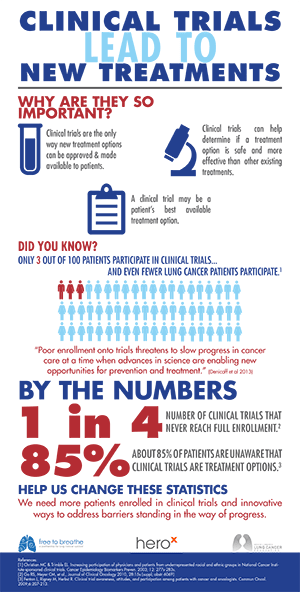Where are they?
Implementing a 'medical' blockchain solution in the Healthcare industry is currently the holy grail of the decentralized technology and distributed ledger camp. Yet, a viable solution that will achieve both ease of adoption in addition to improvements to existing workflows resulting in measurable value added, still has yet to be produced.
Lacking Confluence
One issue is that many in the blockchain space do not understand the intricacies of the healthcare system enough to design a solution that will not receive massive pushback from already strained workforce in the healthcare industry.
There is also the issue of the misinterpretations of what exactly blockchains are best suited for and how they are not best suited to be used as a traditional database would be used.
Another factor is that regardless of marketing efforts, a solution that exploits patients by incentivizing them to give their data to insurance and pharmaceutical companies will never fly. To think that any benefit to the patients can be achieved through something like this is a step backwards in improving the healthcare landscape.
The ideal minds behind the technological implementation will we versed in both blockchain technology and medicine, ideally having spent time working with smart contracts as well as working directly with patients in a clinical setting. Having an educational background in psychology and finance would be beneficial for implementing an easily acceptable and business logical iteration that makes things easier AND provides value. Where do we find someone that fits this criteria?
Where do we find someone who has: the technological experience from having built blockchain solutions and written smart contracts, the business knowledge from having started a company, the resilience from having seen that company fail from lack of funding, and the humility that only comes from having conversations with patients who are no longer with us during the clinical research informed consent process. Patients who sacrificed time they could be spending with their family to support medical research.
If you have made it this far then you probably already know the answer. The following is the first of several installments of how to Conquer the Healthcare Blockchain.
Consent
Benchoufi, et al. TK implemented a blockchain-based informed consent process bound to protocol version to achieve the following: ensuring the consent process occurs prior to procedures being performed, automated assurance of re-consent following protocol amendments, and recording the consent event in a way that is publicly verifiable, unfalsifiable, transparent, and empowers the patient, all without exposing the personal information of the patient.
This document cannot be corrupted, and can be checked on any dedicated public website. It should be considered as a robust proof of data. In the future, we think that the complex data flow of a clinical trial can be tracked using Blockchain. Moreover, a blockchain core functionality, Smart Contracts, can help prevent clinical trial events not to happen in the right chronological order: including patients before they consented or analyzing case report forms data before freezing the database. This will help reaching reliability, security, and transparency, and could be a consistent step towards reproducibility.
Improving Clinical Research Quality
Benchoufi & Ravaud (2017) explored the use of Blockchain technology for improving clinical research quality and found the following benefits:
- Blockchain was able to enhanced data integrity by ensuring events were tracking in the order in which they occurred and provide a novel way to create a 'historicity and traceability' using blockchain technology that is unique to the technology.
- Smart Contracts offer a programmatic means by which events in a trial can only occur if the preceding steps in the contract have been completed.
Pharma Chain
Bukstel & Coli (2015) make the point that "the Pharmaceutical Clinical Blockchain will have an anonymous representation of information of a patient’s clinical information. The research organization will post a request for a “smart contract” identifying the conditions for inclusion in a clinical trial. Patients with the appropriate clinical trial or research diagnosis and conditions, including lab results and prescribed medications will have the ability to respond directly to the pharmaceutical company, and CRO (Clinical Research Organization i.e.: Quintiles, Parexel, Mayo Clinic, University of Pennsylvania, Duke Clinical Research Institute, Stanford, NIH, etc…)"
A healthcare innovation salon was hosted on December 6, 2016 by the University of St. Thomas, Opus College of Business and U.S. Bank, Innovation Research and Development to explore “Blockchain Technology for Healthcare”. Here are some of the takeaways:
Barriers to Implementation
- Patient records are generated by a number of different care providers (hospitals, labs, pharmacies, etc), necessitating the requirement for a large number of entities within the care delivery network to be able to access and commit new information to the ledger.
- HIPAA regulations currently prevent sharing of patient data in a distributed ledger and require different security protocols for healthcare networks.
- Data structures and definitions vary across health care institutions necessitating the development of a blockchain framework of structure and semantics with transaction protocols that would need to be validated at the source or at the time of appending blocks.
Advantages of Blockchain
- In the New Health Economy, the case for the use of blockchain applications may be driven by consumer demand, especially when the technology begins to be actively used in other industries such as in retail.
- Blockchain applications may prove to be especially helpful for consumers through the elimination of intermediary functions, increased automation, fewer processing delays, less human error, reduced data duplication, reduced level of reporting. There is the potential to reduce health care administrative costs.
- Blockchain stops the need to administratively “reconcile” payments against complex health care fee schedules; all data is viewable and transparent to consumers and their providers.
- Consumers/patients can directly engage and authorize data exchange within a health care peer-to-peer network based on the consumer’s defined terms and timeframes. In this way, a patient could release data for clinical research and/or to personalize health services.
- Blockchain applications may be helpful in the application of personal finance transactions (HRAs/HSAs, private exchange benefit administration).
Rethink Benefit and Insurance Administration.
Areas such as enrollment/eligibility, insurance claims, provider network contracts, prior-authorization, care approvals could be automated to improve administrative efficiency. Reinsurance review could be more easily facilitated by enabling access to the blockchain network rather than requiring access to siloed information sites and/or complex reporting requirements. Redistribution of excess pooled insurance funds could be automated. Peer-to-peer insurance, or shared risk, would be immediately transparent between parties. Insurance consortiums (made up of payers, providers, employers, reinsurers, consumers, etc.) could proliferate and evolve to be more real time and individualized. New types of insurance
models could be supported including short term “spot” insurance,
microinsurance and peer-to-peer insurance plans.
References
Benchoufi, M., Porcher, R., & Ravaud, P. (2017). Blockchain protocols in clinical trials: Transparency and traceability of consent. F1000Research, 6(1), 66. https://doi.org/10.12688/f1000research.10531.3](https://doi.org/10.12688/f1000research.10531.3)
Benchoufi, M., & Ravaud, P. (2017). Blockchain technology for improving clinical research quality. Trials, 18(1), 335. https://doi.org/10.1186/s13063-017-2035-z
Bukstel, E., & Coli, R. (2015). Implementing Clinical Blockchain Interoperability To Address Specific Use Cases in Patient Care, Public Health, And Pharmaceutical Research. PhD Proposal, 1(August), 1–18. https://doi.org/10.1017/CBO9781107415324.004
Hammes-betti, S. (2016). Blockchain Technology for Healthcare Innovation Salon, 1–18.

